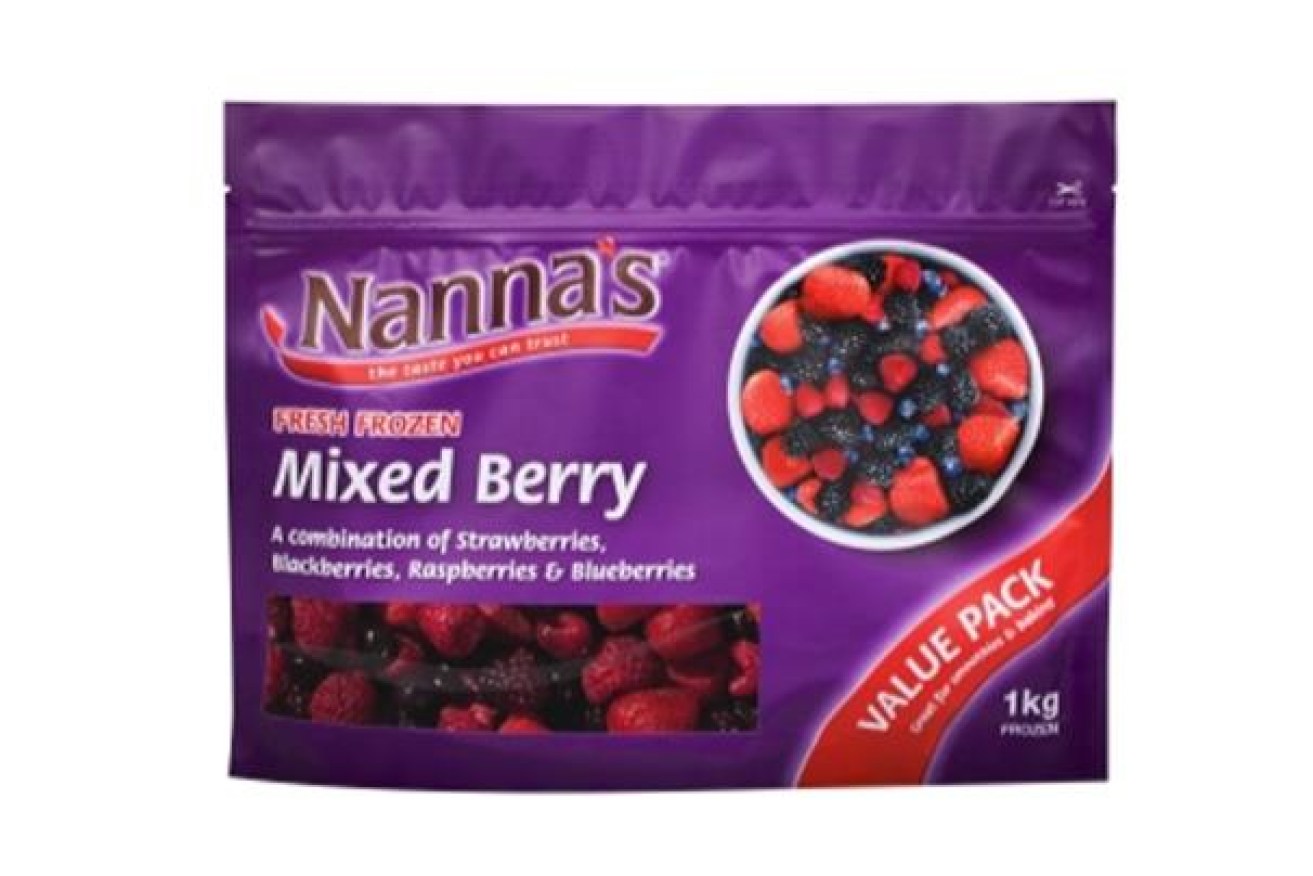More frozen berries recalled over hepatitis A scare

A second brand of frozen mixed berries has been withdrawn from supermarket shelves across the country, as five cases of hepatitis A linked to the product are confirmed in New South Wales and Victoria.
One-kilogram bags of Nanna’s frozen mixed berries were recalled on Saturday as a result of the health scare.
The recall has now been extended to Creative Gourmet mixed berries in 300 gram and 500 gram packets.
• Beating obesity is a plum job
Health officials have confirmed three cases of hepatitis A linked to the product in Victoria and two in New South Wales.
Consumers have also been told not to eat fruit from the Nanna’s one-kilogram packets with best-before dates up to and including November 22, 2016.
People have also been told not to consume fruit from the Creative Gourmet 300 gram packets with best-before dates up to and including December 10, 2017, and 500 gram packets with best-before dates up to October 6, 2017.
The berries came from China and Chile and were distributed by Patties Foods, which is based in Bairnsdale, east Victoria.
A statement from the company said while quality control testing to date had not revealed any concerns with the food safety of either product, “further detailed testing is being done and the recall is an important step to ensure public safety and confidence”.
The statement said: “We have decided that all our frozen Mixed Berries should be recalled until such time as we receive the results of further laboratory tests.”
The company said the “voluntary recall” was in the interests of consumer safety and that the “health and wellbeing of consumers is paramount”.
It said the “full national “recall was a precautionary measure following advice from the Victorian Health Department of potential hepatitis A contamination.
Confirming the second case in NSW, the state health department said it was not sure how many others may be affected given the berries were widely distributed and the potential for people to develop the disease in the coming weeks.
Dr Vicky Sheppeard from NSW Health’s Communicable Diseases Branch said there were concerns because hepatitis A was contagious.
“So far we’ve had two people that have confirmed hepatitis A, that in the weeks to months before they developed hepatitis A had consumed these berries and they’re coming from different parts of the state, so we’re concerned this might be a more widespread problem,” said Dr Sheppeard.
Dr Sheppeard said NSW Health were expecting more cases to arise.
“The incubation period for hepatitis A is between two and seven weeks, so at this stage it’s an early stage of the investigation and we’re still gathering information about how much of the product is in NSW homes but potentially we will be seeing more cases in the coming weeks,” said Dr Sheppeard.
On Saturday, Victoria’s chief health officer said frozen berries had been implicated in past outbreaks of hepatitis A.
“Hepatitis A virus infection is uncommon and normally associated with travel to countries affected by endemic hepatitis A,” Dr Rosemary Lester said.
“The only common link between the cases is consumption of this product. There is no overseas travel or common restaurant exposure.”
Meanwhile Dr Sheppeard said it was important people could identify symptoms early enough to help prevent the disease spreading.
The early symptoms of hepatitis A include a fever, loss of appetite and nausea.
These symptoms develop over several days to a week before more advanced signs of the disease start to emerge, including jaundice which is noticed by yellowed skin and yellow eye balls, or dark urine and pale stools.
“It’s quite infectious and readily spread from person to person, that’s why its important people are aware of it now so that if they are in the early stages of the illness they can take steps to prevent spreading it to others,” said Dr Sheppeard.
Hepatitis A is spread when traces of faecal matter containing the virus contaminate hands, objects, water or food.
NSW Health said hepatitis A could be prevented by vaccination.
The frozen mixed berries are sold mainly in Woolworths, Coles and IGA supermarkets.
Concerned consumers can call the company on 1800 650 069.








